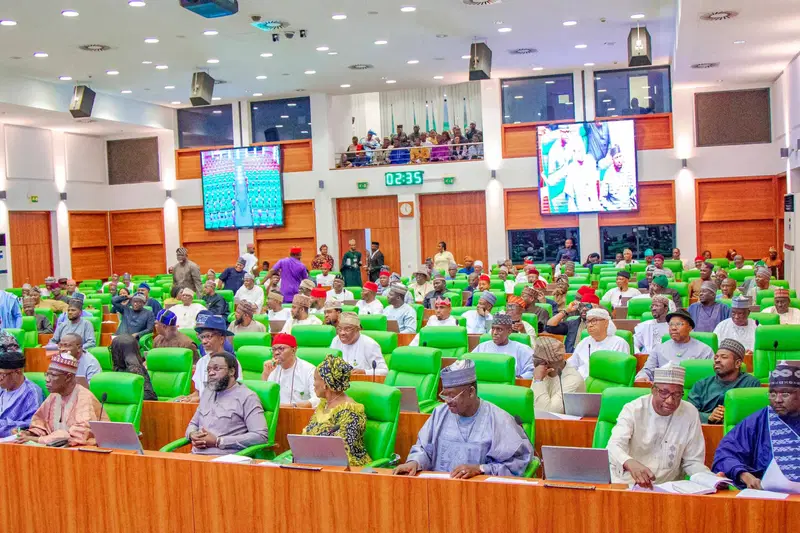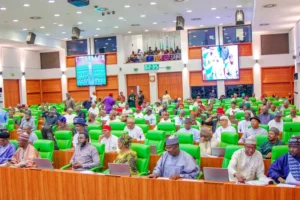Nigeria’s long-standing dream of energy independence has progressed with the emergence of local refineries and the deregulation of the fuel sector.
The government presents these developments as solutions to the nation’s energy challenges, but the reality may be more complicated.
- Local refining is a crucial step toward industrialization, with the potential to create thousands of jobs across various sectors.
- The ripple effects of local refining could stimulate economic growth and reduce unemployment.
- The expansion of downstream infrastructure—pipelines, storage facilities, and distribution networks—will enhance the efficiency of petroleum product distribution.
- This improvement may lead to reduced transportation costs and increased market access.“Beyond job creation, the expansion of downstream infrastructure—pipelines, storage facilities, and distribution networks—will also improve the efficiency of petroleum product distribution, potentially reducing transportation costs and increasing market access.”
However, some experts argue that the economic relief promised by these reforms may take time to reach everyday Nigerians. As Nigeria becomes self-sufficient in petroleum production, pressure on foreign exchange (forex) will ease, strengthening the naira and reducing inflation. In theory, this should lower the cost of goods and services for consumers. But will this theory hold up in practice?
- The ultimate goal of local refining is for Nigeria to become a net exporter of petroleum products, earning crucial foreign exchange and enhancing its economic resilience and global competitiveness.
- For this potential to be realized, the deregulation of the petroleum sector must be fully embraced.
- By removing subsidies and price controls, the government aims to create a market-driven sector where competition among refiners leads to better services, improved quality, and increased investment.
- Yet, deregulation alone doesn’t guarantee affordable prices in the short term, especially for consumers who are already facing a cost-of-living crisis.- Local refining is about more than just cheaper fuel; it’s about transforming Nigeria’s economy through industrialization, infrastructure expansion, forex stabilization, and export competitiveness.
- With Dangote Refinery and other local refineries coming online, Nigerians must look beyond the misconception of cheap fuel and focus on the broader economic benefits local refining could bring.
Deregulation: The risks and rewards
- The removal of fuel subsidies has enabled a market that operates without government intervention in pricing, with costs now influenced by global oil prices, exchange rates, and local refining costs.
- Although prices may initially rise, advocates claim the long-term gains—reduced smuggling, increased investment, and a more competitive market—will outweigh these short-term costs.
- The Petroleum Industry Act (PIA) requires the Nigerian National Petroleum Company Limited (NNPC) to operate as a commercial entity, competing with other players in the petroleum market.
- However, as a state-owned entity, can NNPC balance its commercial interests with its responsibilities to the public?
- The stakes are high, as deregulation, if not managed well, could concentrate power in a few hands, potentially leading to price manipulation.CNG as an alternative: A green step or a temporary fix?
- Given the high cost of petrol, the government is promoting compressed natural gas (CNG) as a cheaper and cleaner alternative through the Presidential CNG Initiative.
- At N230 per litre, CNG offers immediate relief for consumers and contributes to global environmental goals by reducing carbon emissions.
- The government is also investing in infrastructure to support CNG adoption, but will this be enough to shift consumers from petrol dependency?.This push for CNG highlights a positive trend toward energy diversification but may be a temporary fix in a landscape where systemic issues persist.
A call for accountability and transparency- The Nigerian public needs to be patient and vigilant in holding the government accountable for how it uses the funds saved from subsidy removal.
- In a recent government document titled A Quick Guide to Current Fuel Pricing in Nigeria, the State House affirmed that as refining becomes more efficient, pump prices will adjust accordingly.
- However, Nigerians have heard promises before, making it crucial for the government to commit to channelling these savings into critical sectors like healthcare, education, infrastructure, and job creation.
- The document states, “The removal of subsidies will free up billions of dollars that can be used to stabilise the naira and create a more competitive market for domestic refining.”
- This transformation will require transparency, fair competition, and a commitment to long-term stability; without these, the reform process risks exacerbating inequalities rather than alleviating them.Addressing the root causes of economic instability
- As Nigeria continues its journey toward energy independence, the challenges are numerous.
- While local refining and deregulation could bring substantial benefits, the government must implement robust regulatory frameworks to ensure that transparency, accountability, and fair competition prevail.

- Ultimately, Nigeria’s path to energy independence must prioritise the welfare of its citizens over corporate interests, addressing the root causes of economic instability effectively.




















